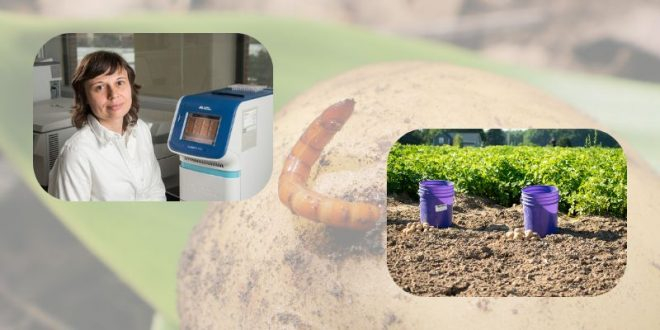#Agriculture #PotatoProduction #PestManagement #Neonicotinoids #USDAGrant #SustainableFarming #EnvironmentalImpact #CropInnovation #AgriculturalResearch #FoodSecurity
In a significant development for the agricultural community, the National Institute of Food and Agriculture (NIFA) has allocated a substantial $6 million grant to Professor Zsofia Szendrei and her team at Michigan State University (MSU). The initiative, part of the USDA Specialty Crop Research Initiative (SCRI), focuses on investigating alternative insect pest management techniques for American potato production systems. The decision to move away from neonicotinoids is driven by the escalating problems associated with their use, prompting a more comprehensive exploration of pest management strategies.
As neonicotinoid-related issues worsen, the research team, comprising extension experts, social scientists, entomologists, and potato breeders, embarks on a mission to make significant progress. The team’s expertise spans various aspects of potato cultivation, promising a more holistic approach compared to smaller efforts without substantial funding.
Entomologists within the team are set to experiment with insecticides devoid of neonicotinoids, assessing their efficacy and environmental impact. The goal is to develop pest-management strategies that are not only effective against key pests but also environmentally friendly, safeguarding beneficial insects. The team plans to test different tiers of insecticide programs, creating a season-long control strategy akin to a menu of options.
The initiative’s geographical reach, allowing the team to work in multiple states, enables them to address pest issues specific to various U.S. potato-growing regions. Long-term objectives involve identifying potential obstacles in implementing neonicotinoid-free systems and understanding the impacts of this transition on the potato sector.
An exciting aspect of the project is the creation of an interactive map for farmers, predicting potential pest attacks. This technology, successfully used in mapping Washington apples, will provide advanced notice for growers to apply insecticides effectively.
Professor Dave Douches, part of the team, will contribute by developing and testing different varieties of potatoes resistant to insects. This preventive approach, breeding plants with natural resistance, serves as a crucial defense mechanism.
Neonicotinoids, commonly used since the 1990s, face increasing scrutiny due to factors like insect resistance and their impact on non-target creatures. Companies and food stores, mindful of pollinator and ecosystem health, have taken steps to limit or discontinue products grown with neonicotinoids.
The grant, spanning at least three years, provides a significant opportunity to revolutionize potato pest management. With the possibility of additional USDA funds in the future, Professor Szendrei expresses enthusiasm for continuing collaboration with growers, sharing insights and strategies stemming from the team’s research.
The NIFA’s generous grant to Professor Szendrei’s team marks a crucial step toward transforming American potato agriculture. By steering away from neonicotinoids and embracing a multidisciplinary approach, the initiative not only aims to solve immediate pest-related challenges but also lays the groundwork for a sustainable and resilient future for the potato sector.







